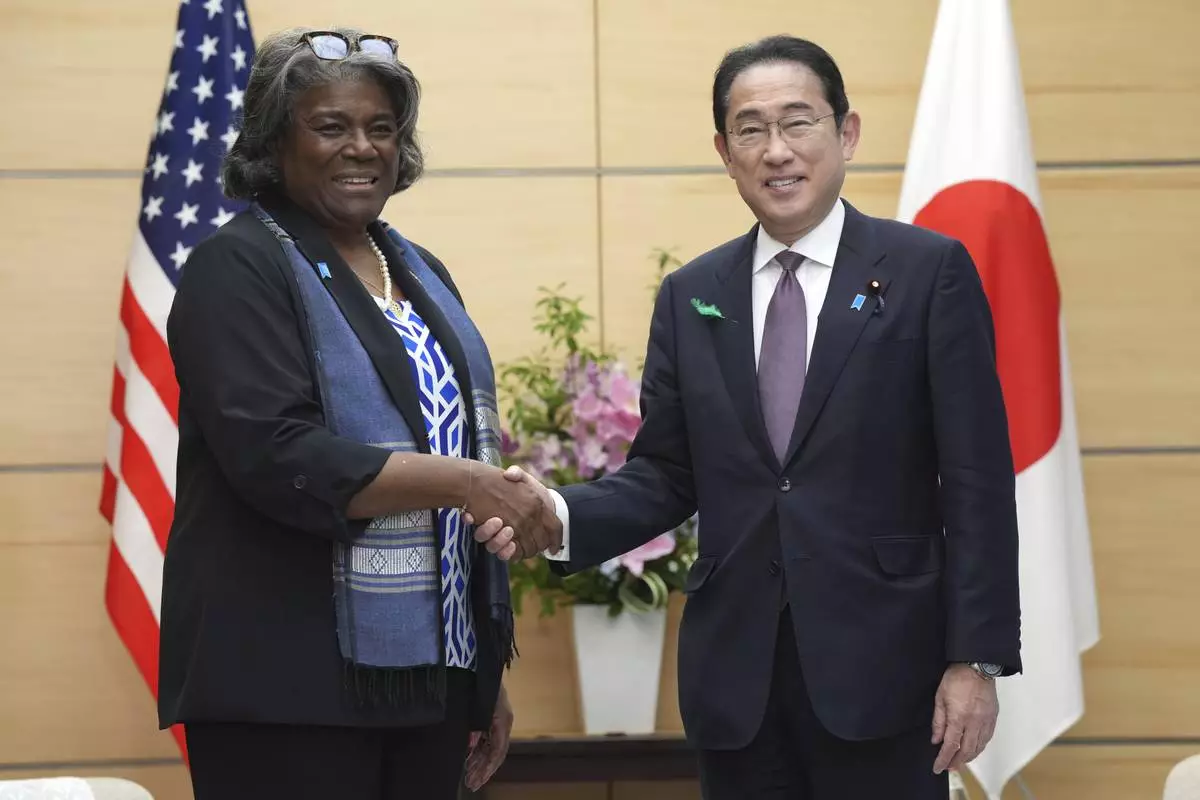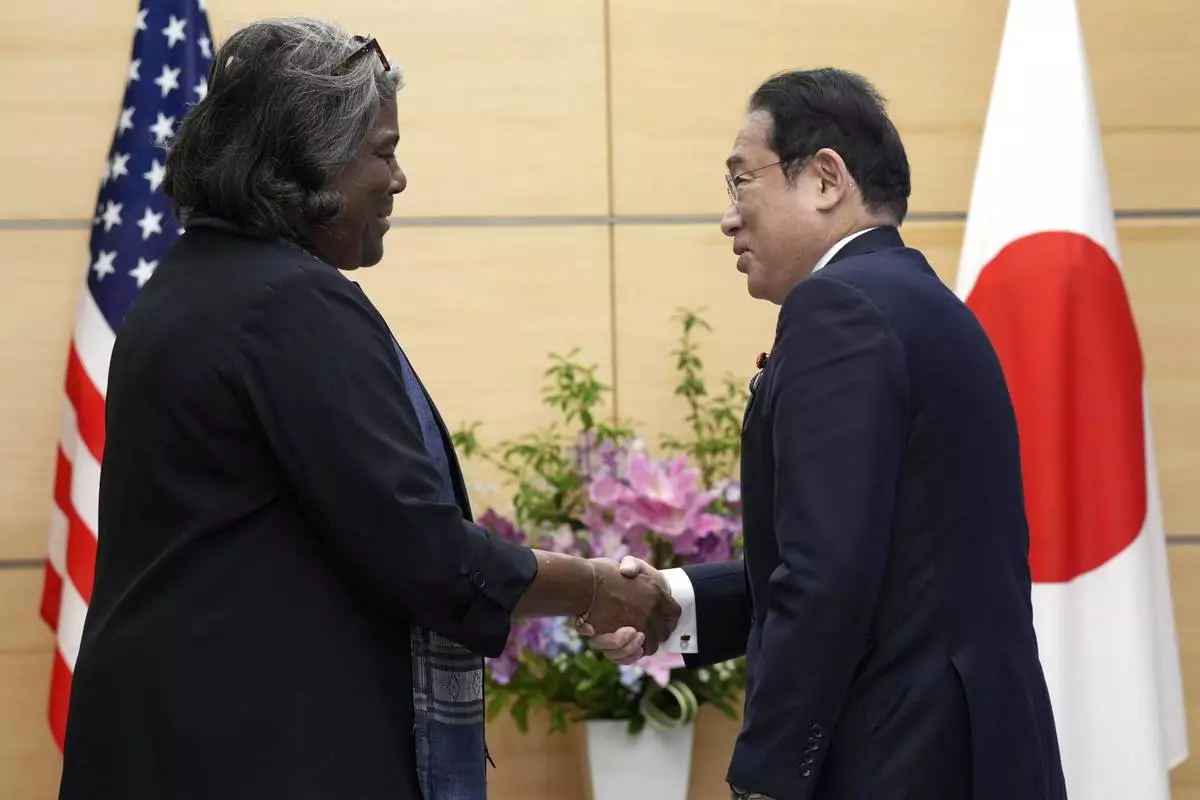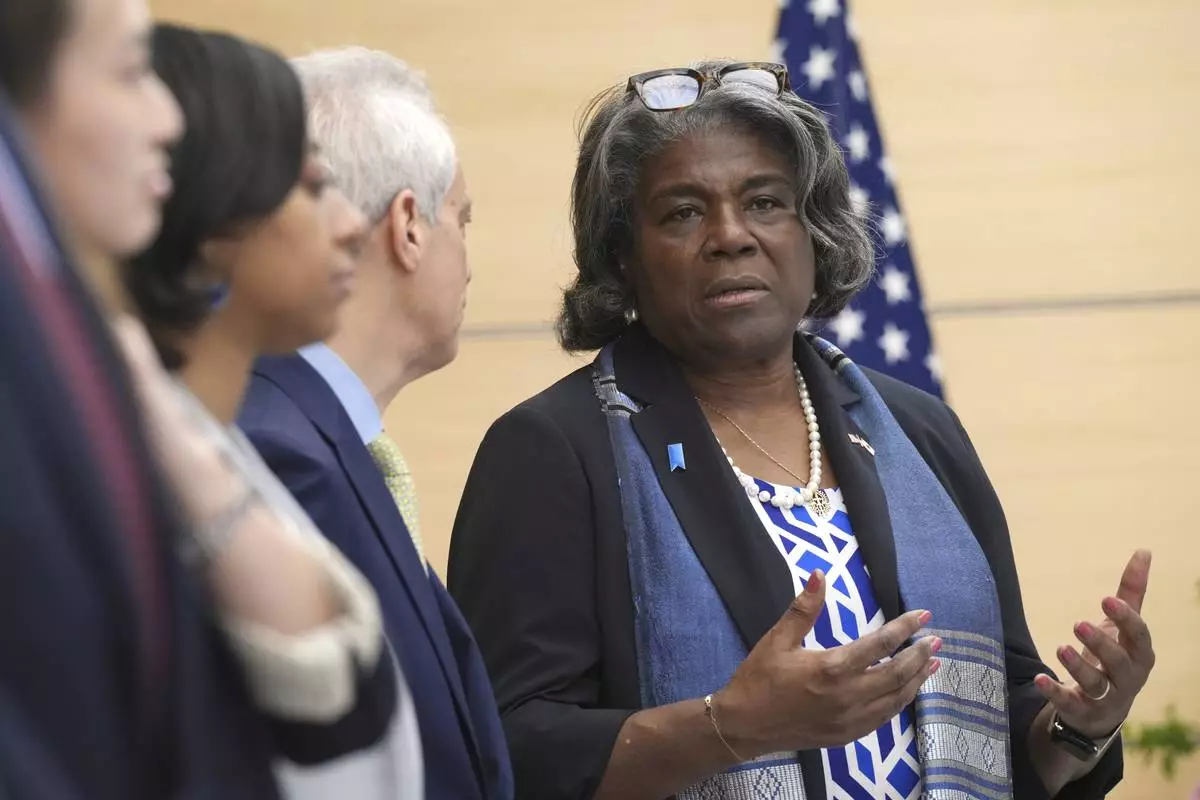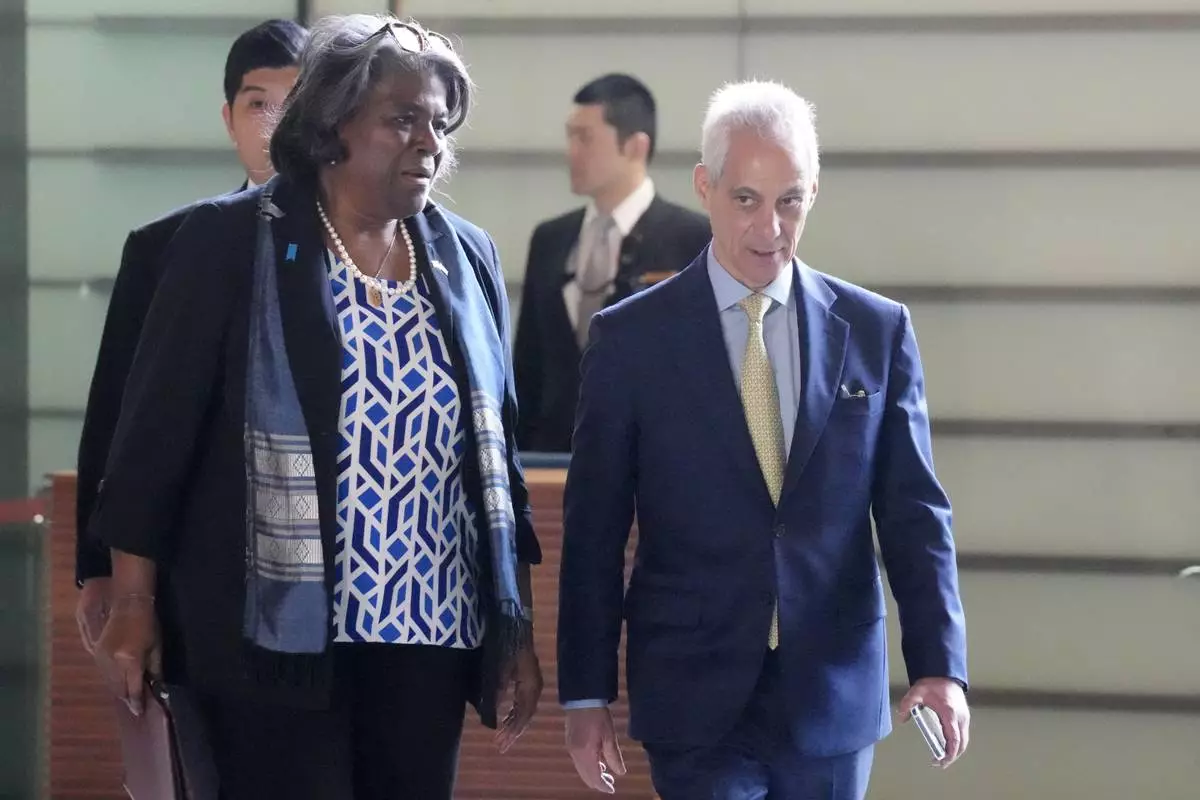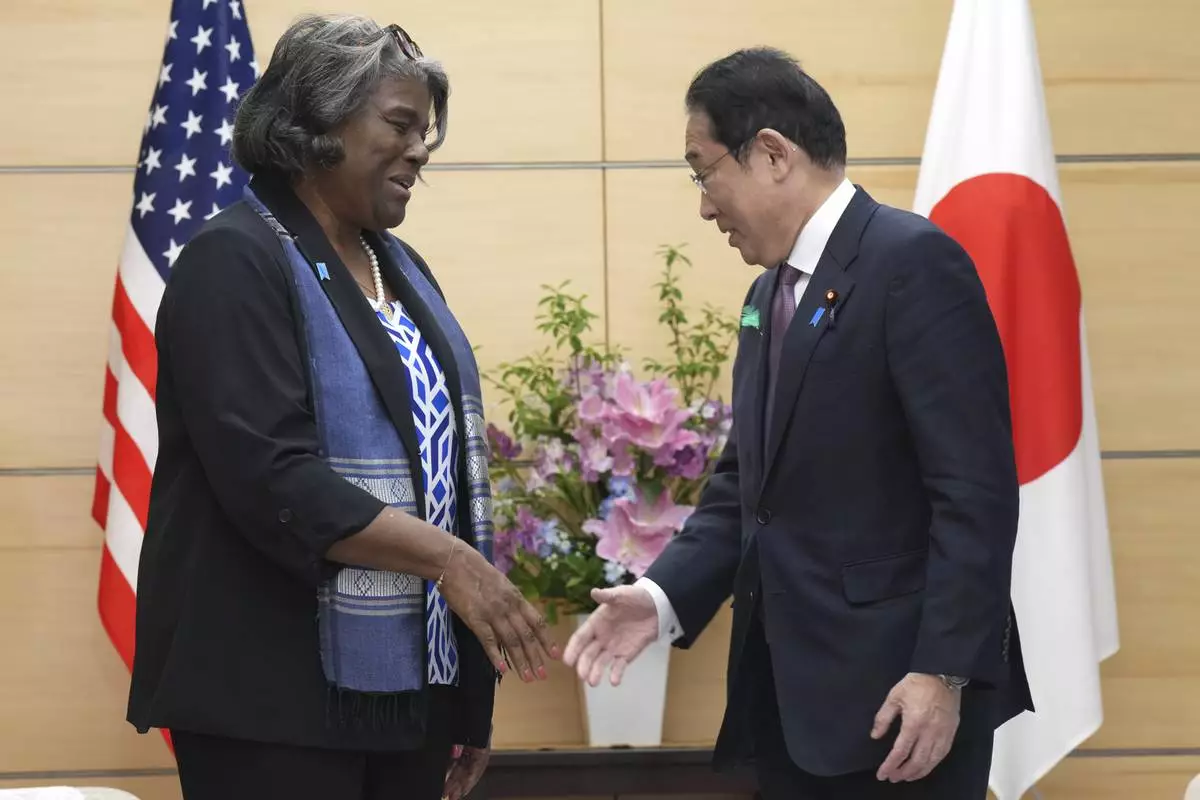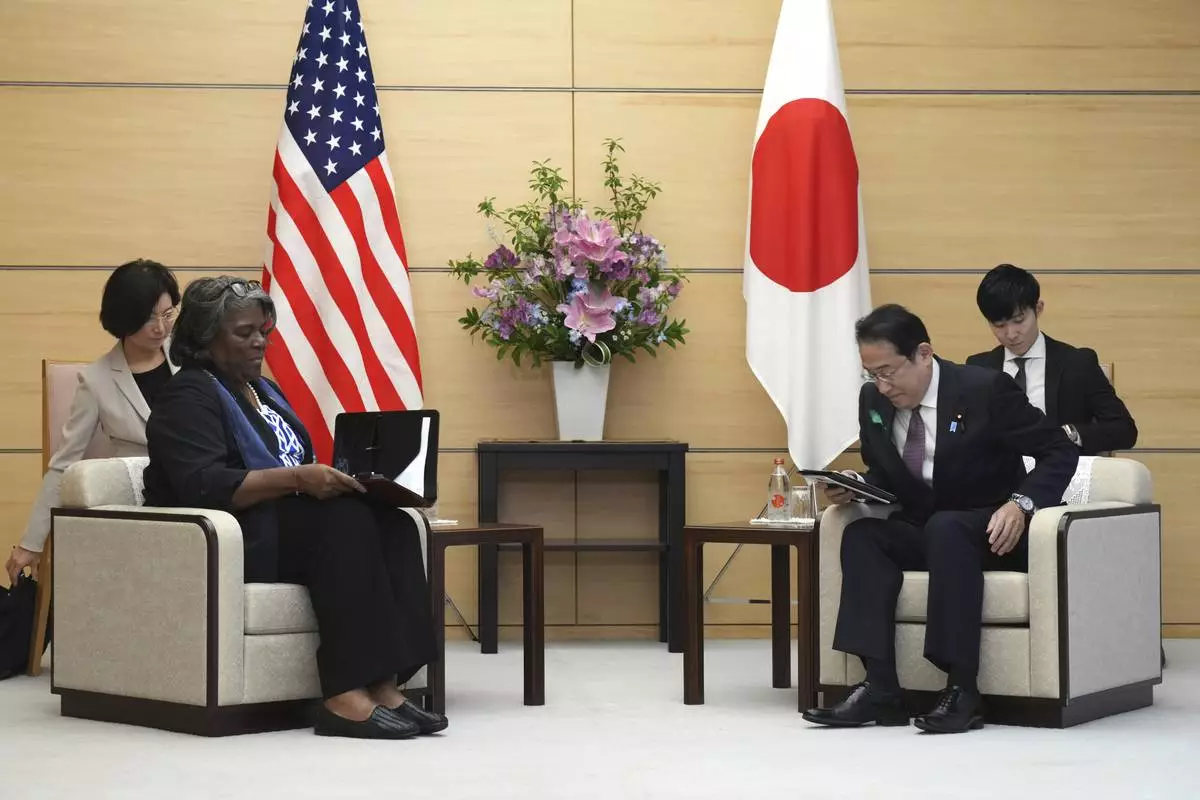Sitting in my suburban American kitchen, it is easy to feel that Saudi Arabia is a world away, that events at the Saudi consulate in Istanbul — as gruesome as they now seem to have been — have little to do with me.
Except for one thing.
Almost 25 years ago, Jamal Khashoggi was my friend and mentor when I was a young reporter in Yemen on a fellowship studying Islamic movements. I got to see him in action and experience his remarkable kindness and wisdom. He changed my life and may even have saved it.
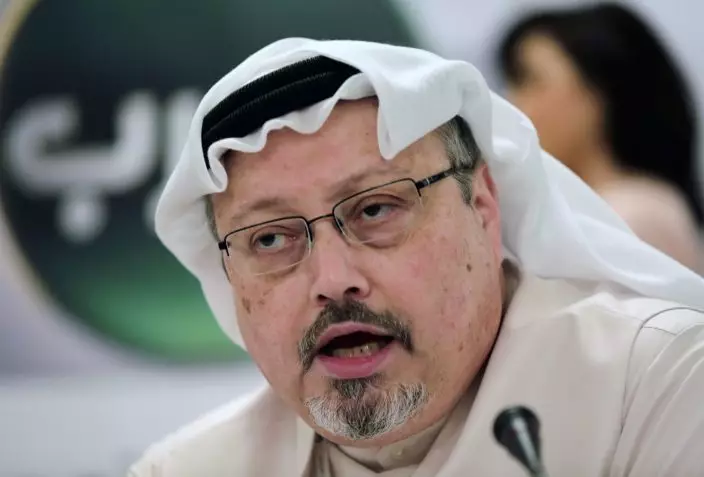
FILE - In this Feb. 1, 2015, file photo, Saudi journalist Jamal Khashoggi speaks during a news conference in Manama, Bahrain. Jamal Khashoggi was Katherine Roth's friend and mentor when she was a young reporter in Yemen in the mid-1990s. He was a perceptive guide and a much-needed bridge between political Islam and the West, Roth said. She said he changed her life and may even have saved it. (AP PhotoHasan Jamali, File)
In an age when cultural stereotyping is too frequent and when the #MeToo movement highlights how commonplace bad behavior truly is, Jamal was a gentleman and an unfailingly perceptive guide in a pivotal time and place.
Those were the years before 9/11 changed the world. In the heady and dangerous latter half of 1994, Islamists — many of them fresh from Osama bin Laden's training camps in Afghanistan — won the upper hand in Yemen's civil war. I was possibly the only Western woman covering the northern front of the war, where they led the fight.
I had the amazing good fortune to meet Jamal, who made sure I had access to everyone across the Islamic spectrum, from hardcore jihadis (some of whom agreed to speak with me only after Jamal bravely said he wouldn't talk with them unless they did) to mystical-leaning Sufis.
I have a photograph from those days, taken by Jamal, of me standing beside Tareq al-Fadhli, a Yemeni jihadi who had fought under Osama bin Laden in Afghanistan before becoming a commander on the front lines in Yemen. Jamal encouraged me to see this intimidating man as an aspiring and able local leader who was using the only means he knew to retake lands once ruled by his family. And Jamal was right: The man left the jihadi movement soon after the war ended, joining the government there.
Late in 1994, Jamal made sure I was included in the Yemeni delegation to a religious conference in Sudan, where we celebrated my 30th birthday together (our birthdays were a day apart) at the Khartoum Hilton. He courageously attempted to convince bin Laden, who was living there at the time, to let me interview him. (An infidel American woman? Even Jamal and his unmatched way with words couldn't convince bin Laden to budge.)
I never had the impression that Jamal sympathized with his views, and he certainly did not condone terrorism in any form. He was a well-connected reporter trying to get the whole story and to encourage others, like me, to dig beneath the surface, too.
He seemed to have earned the respect of all sides, whether Islamist or leftist and secular.
Jamal also had a playful streak, and a soft spot for electronic gadgets. He had the tiniest Japanese tape recorder I'd ever seen — about half the size of a deck of cards, with a microphone the size of a blueberry. And he had a passion for the Nintendo Game Boy. It seemed like he had every model and game, and between our long discussions about Islam, he would expound on the evolution of the games. He played them as he waited for interviews to begin, or in the long car rides across Yemen.
A non-believing American blonde and a tall devout Saudi — we must have been a sight as we traversed Yemen, visiting mosques and meeting Islamic leaders of various persuasions. Jamal was protective of me in danger zones while respectful of my personal space.
He shared with me time and again the many ways that Yemen reminded him of the beloved Saudi Arabia of his childhood. I never met anyone who loved his homeland more.
His adherence to the values of Islam, and the depth of his desire to help outsiders like me understand the wide spectrum of Islamic ideologies, was real. Before 9/11 and after, Jamal was a much-needed bridge between ever-evolving political Islam in all its iterations and the West.
He was also ready to listen to criticism of Islam. On one holiday in Yemen, Jamal went into a mosque while I — along with dozens of Yemeni women — was left to listen to the sermon while seated in the dusty streets outside. It was a long sermon, and as it went on I became angrier and angrier. "Why should 50 percent of the population cover themselves and be forced to sit outside because the other 50 percent of the population can't behave themselves?!" I shouted at him later.
I don't remember his reply. But he listened. And he understood my frustration.
A devoted family man, he spoke often in those days of his beloved wife and family. My heart goes out to them and to his fiancee, whom he planned to marry soon after obtaining from the Saudi consulate in Istanbul the paperwork certifying his divorce. He vanished after entering the consulate on Oct. 2.
It's unbelievable that a man so deft at navigating danger for so many decades, so courageous in his reporting, so optimistic about humanity in general and so utterly patriotic about Saudi Arabia and its potential, should be so suddenly and cruelly silenced.
I wish more Americans had had the chance to know Jamal Khashoggi as I did that year.
As I sit in my kitchen now, wishing that I could offer him some coffee or a cup of tea, I see all too clearly and painfully that he was not just another Saudi, not just another brave journalist. He was a caring human being who could, truly, have been anyone's friend.
Roth researched Islamic movements in the Arab world on a fellowship from the Institute of Current World Affairs from 1993 to 1995. In 1995, she joined The Associated Press in New York, where she continues to contribute stories on a freelance basis.



